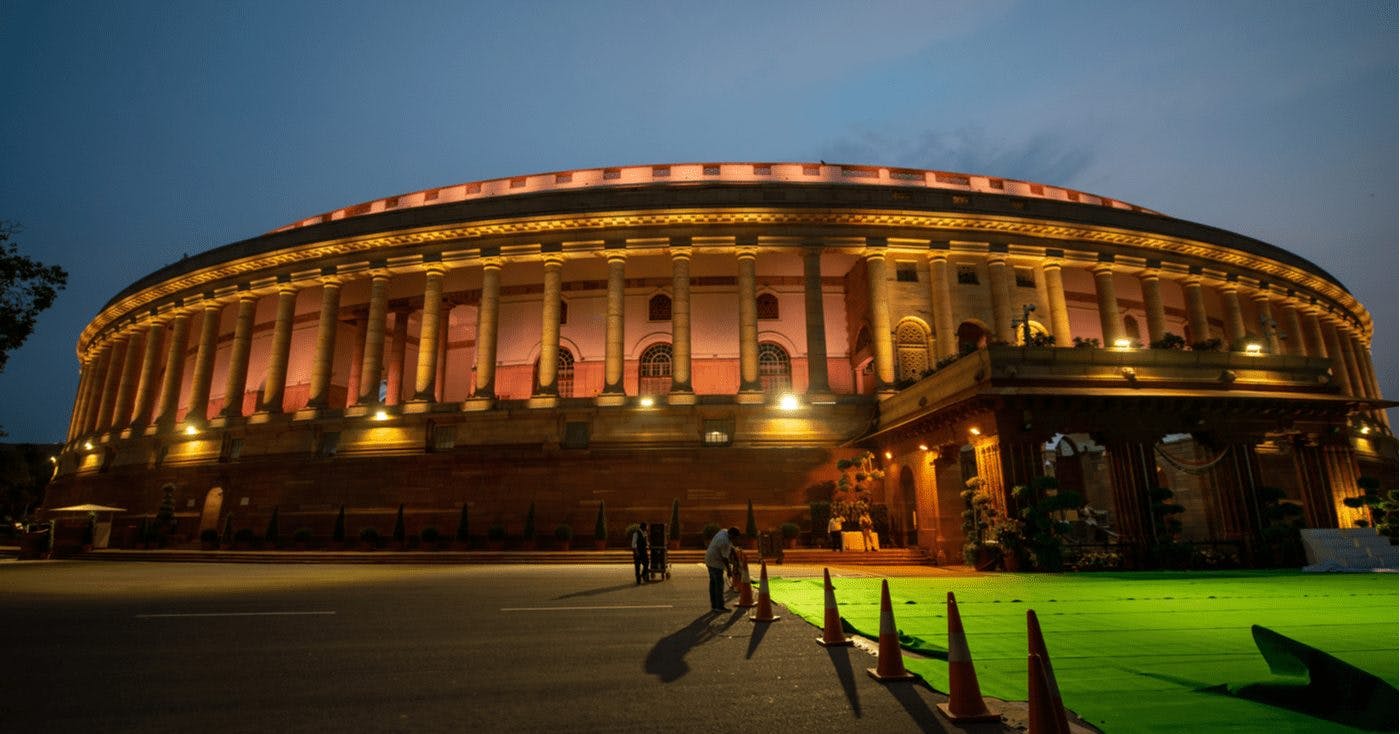India Crypto Ban About Payments, Not the Asset Class
Analysis of new India crypto bill shows that the government isn’t leaning towards a blanket ban, but rather creating a regulatory framework.

The Indian Parliament building in New Delhi; Source: Shutterstock
- India’s crypto ban is about ensuring that digital assets aren’t used for payments, thereby dodging taxes, and to allow for digital assets to be regulated via the Securities and Exchange Board of India
- The bill also provides means for the Reserve Bank of India to create a Central Bank Digital Currency
Recent legislative proposals by India’s government are not seeking to ban cryptocurrency outright, but rather create a legislative framework to regulate it as a security while prohibiting it as a payment method and instead promoting an Indian Central Bank Digital Currency (CBDC).
The bill, titled the “Cryptocurrency & Regulation of Official Digital Currency Bill 2021” is identical to one proposed in Parliament last year in New Delhi.
“This bill actually facilitates the allocation of a budget for the creation of a fiat cryptocurrency called the digital Rupee and creates the infrastructure required for mass adoption and usage in the country just like China,” Harsh Rajat, Founder of the Ethereum Push Notification Service, explained to Blockworks.
“However, no blanket ban is proposed on other currencies. The RBI wants the digital Rupee to have a significant place in the Indian economy.”
One difference between this year and last year is that lawmakers know a lot more about crypto, Nischal Shetty, CEO of WazirX, an Indian crypto exchange, tweeted.
Mikkel Morch, a director at digital assets hedge fund ARK36 said in an emailed statement that “an outright ban on such investments might be difficult to implement as the digital asset ecosystem in India extends far beyond cryptocurrencies and includes other investable assets such as NFTs which are becoming increasingly popular in India.”
In a tweet thread, Sino Global Capital pointed out that the law is vague and ambiguous, so it is not quite clear what is meant by “private cryptocurrency” — which would be banned under one interpretation of the bill.
“There is no clear definition as to what private cryptocurrencies are. The bill will need to define the same. It can mean any one of the 3 or a totally new definition,” Sino Global tweeted.
The fund doesn’t think that it means all blockchain-based digital assets, aside from the one created by the government of India.
That interpretation is “highly unlikely considering that the Govt understands that the retail investors have invested close to $6.6 billion in the sector. The industry also directly and indirectly employs 50,000 people,” they tweeted.
But, the contents of the bill are also subject to change throughout the legislative parliament based upon input from the parliamentary committee consisting of members of the opposition parties.
“It is also important to note that this is what the government thinks should be the law and is in no means the final shape of the law. It has to be debated and passed by the parliament to become law,” they concluded.
Get the day’s top crypto news and insights delivered to your inbox every evening. Subscribe to Blockworks’ free newsletter now.






